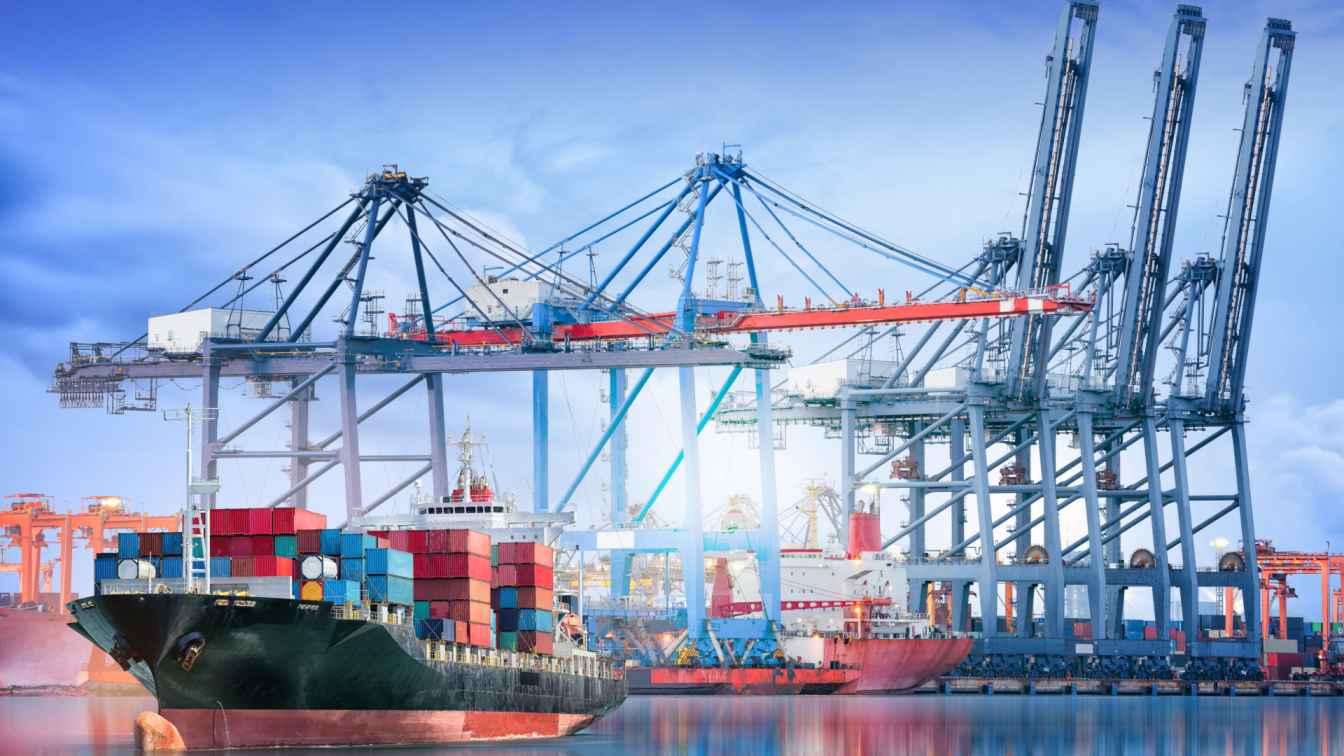Emerging Trends in Marine Insurance 2024: What Brokers and Clients Should Know!
International trade and shipping is experiencing a wave of change, driven by various factors ranging from environmental concerns and technological advancements to global economic pressures and geopolitical tensions. Understanding these emerging trends and being aware of how they have the potential to change risk exposures is crucial for brokers who are looking to ensure they have have the appropriate marine insurance coverage in place for their clients. Below, we explore the key trends currently affecting the shipping and logistics industries and consider how they may impact clients who are increasingly reliant on supply chains that extend across the globe.

1. Impact of Environmental Regulations
The shipping industry is under increasing pressure to reduce its environmental footprint and this can lead to increased direct and indirect financial exposures for any party involved in the movement of cargoes. Regulatory bodies like the International Maritime Organization (IMO) are implementing stricter measures to cut down emissions, such as the IMO 2020 regulation, which limits the sulphur content in fuel oil used by ships. These regulations not only increase operating costs but also create new risks, such as fuel incompatibility, machinery breakdowns, and delays due to compliance issues.For insurance brokers and their clients, it's important to understand whether or not their insurance policies cover the potential risks associated with these regulatory changes. Policies may or may not include provisions for non-compliance penalties, environmental liability, and coverage for risks relating to new fuel technologies.
2. Technological Advancements and Cyber Risks
The shipping industry is increasingly adopting digital technologies like automation, artificial intelligence, and blockchain for supply chain management and vessel operations. While these innovations improve efficiency, they also open the door to new cyber risks. Maritime cyberattacks, such as GPS spoofing or ransomware targeting shipping companies, can lead to costly supply chain disruptions and even hijacking of vessels or their cargoes.Brokers need to consider if marine insurance policies are evolving to address these risks by including cyber liability coverage, which covers damages from data breaches, system malfunctions, and cyberattacks. Brokers should work closely with clients to assess their reliance on digital infrastructures and ensure they have adequate protection against emerging cyber threats.
3. Evolving Risks Due to Climate Change
Climate change is profoundly impacting the maritime industry, particularly through extreme weather events like hurricanes, typhoons, and rising sea levels. These events increase the likelihood of vessel damage, cargo loss, delays and disruptions to shipping routes. The changing climate also affects global trade patterns, as some areas become more accessible (such as the Arctic), while others face higher risks.Insurers are re-evaluating risk models to reflect the growing frequency and severity of natural disasters. As a result, clients may see increased premiums in high-risk areas, and brokers need to help clients navigate these changes by recommending appropriate risk mitigation strategies.
4. Geopolitical Tensions and Trade Disruptions
Global trade is influenced by geopolitical tensions and conflicts, such as trade wars, sanctions, and territorial disputes. For instance, the ongoing conflict between Russia and Ukraine has caused significant disruptions in shipping routes and trade flows, leading to higher insurance premiums for vessels operating in the region. Similarly, tensions in the Red Sea and South China Sea can affect maritime routes, exposing ships to war and terrorism risks, piracy or territorial blockades.Insurance brokers and clients must stay informed about these geopolitical risks and how they affect global shipping operations. They should be aware of the limitations of coverage under standard marine insurance policies in relation to war risks, sanctions, and political unrest.
5. Supply Chain Disruptions and Economic Pressures
The global economy is facing significant challenges, including inflation, fluctuating fuel prices, and supply chain disruptions. The COVID-19 pandemic exposed vulnerabilities in global trade routes, leading to container shortages, port congestion, and shipping delays. These disruptions have continued due to factors like labour shortages and economic instability in various regions.For brokers, it is essential to advise clients on how to navigate these ongoing supply chain challenges. Insurers are offering more specialised coverage options, including delay in transit insurance, supply chain risk policies, and coverage for losses related to labour strikes and port shutdowns. Clients need to assess their supply chain vulnerabilities and secure insurance that protects them from the financial impact of these disruptions.
6. Focus on Sustainability and ESG Compliance
Environmental, Social, and Governance (ESG) factors are increasingly becoming a priority for businesses; the maritime and logistics industries and their insurers are no exception. There is now more focus on encouraging sustainable shipping practices and the adoption of green technologies that reduce environmental damage. This shift is not only driven by regulations but also by investors and customers demanding more sustainable operations.The marine insurance sector has to deal with a complex landscape of emerging risks and opportunities. From environmental regulations, shipping regulations and technological advancements to geopolitical tensions and supply chain disruptions, insurance brokers and clients must stay informed to ensure they have the right coverage in place. As the industry evolves, having a proactive approach to risk management will be key to mitigating potential losses and seizing new opportunities. By understanding and addressing these trends, brokers can serve their clients by helping them better identify and manage emerging risks backed by a suitably evolving marine insurance program.
Disclaimer: The information in this article is for general informational purposes only and does not consider your personal circumstances, financial situation, or specific needs. Always consult a qualified professional for advice tailored to your individual situation.
Want to receive the latest news and boating advice?
We offer a convenient newsletter subscription service that delivers the latest updates to your inbox. To sign up, visit our website and enter your email address in the subscription box. It's quick, easy, and free, and you'll be the first to know about any new products or services we offer
Thanks for signing up!

